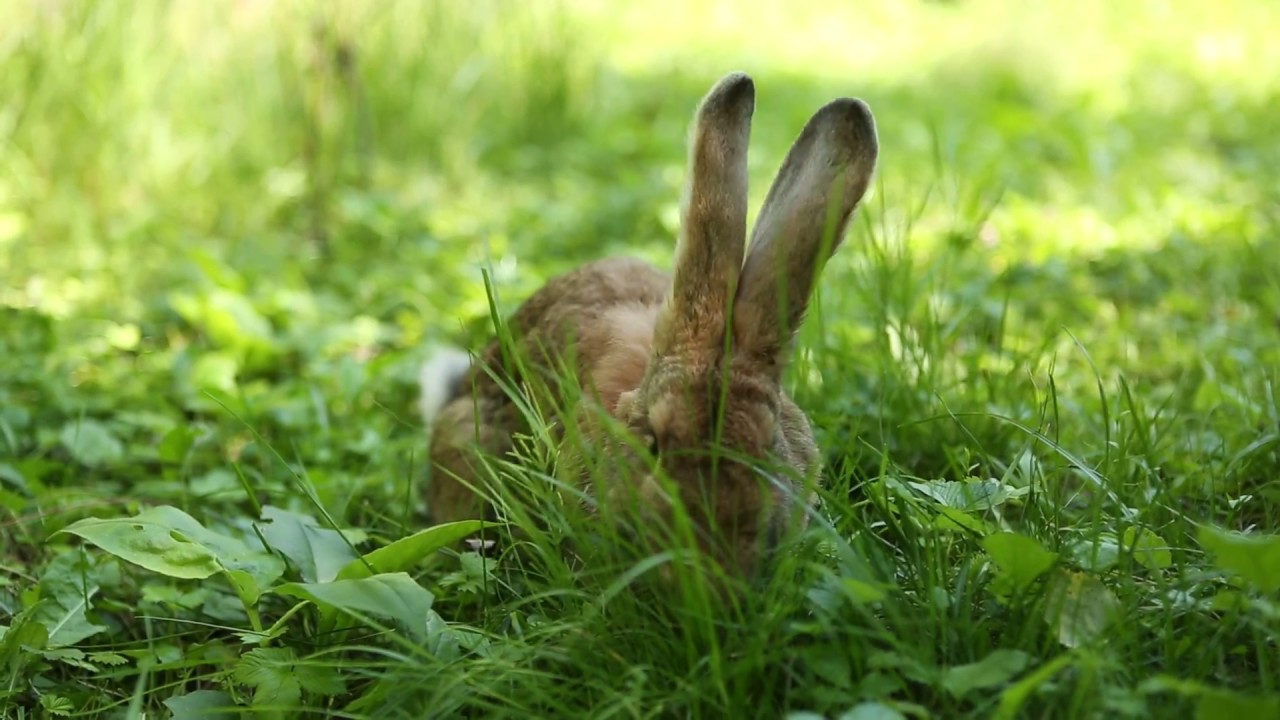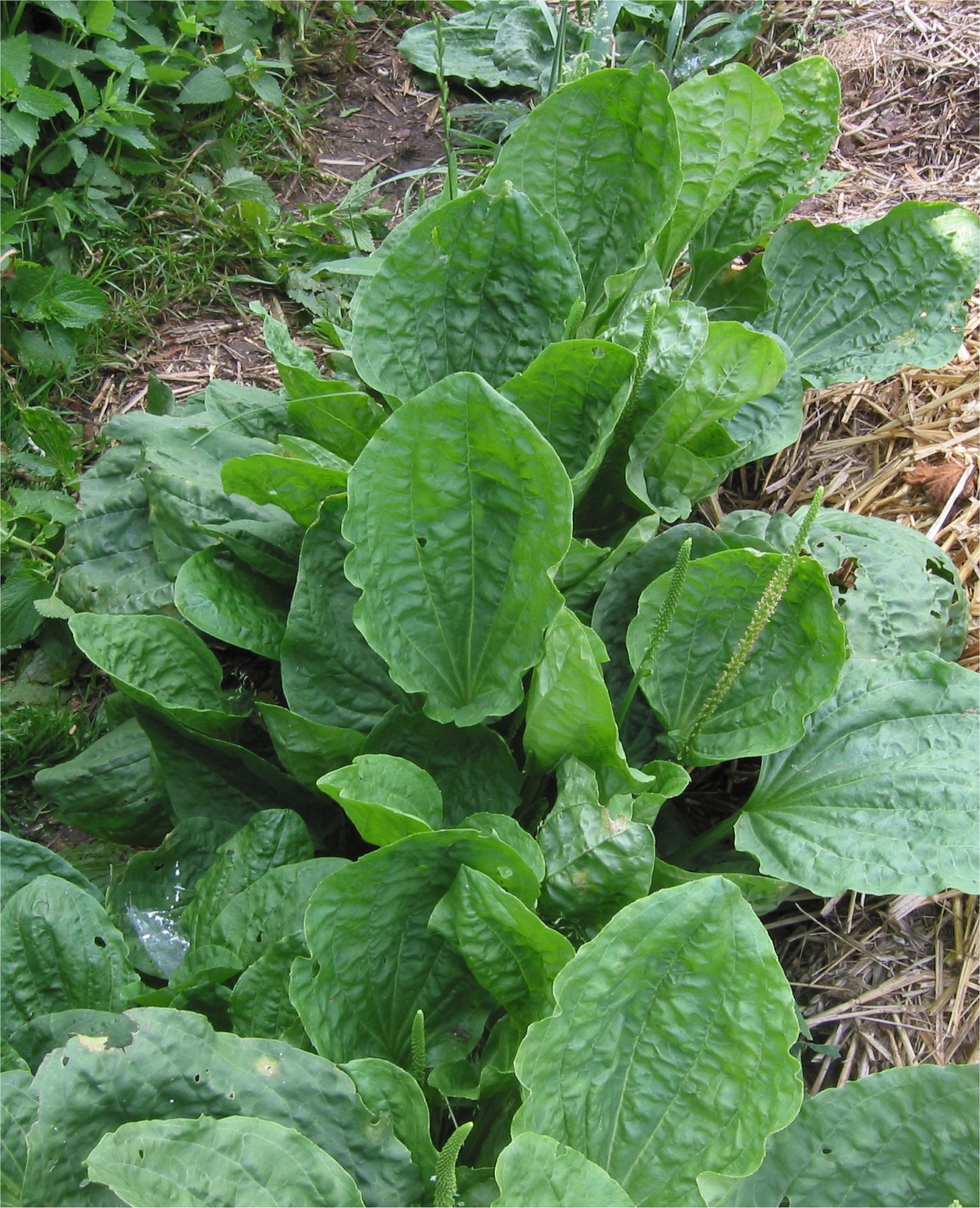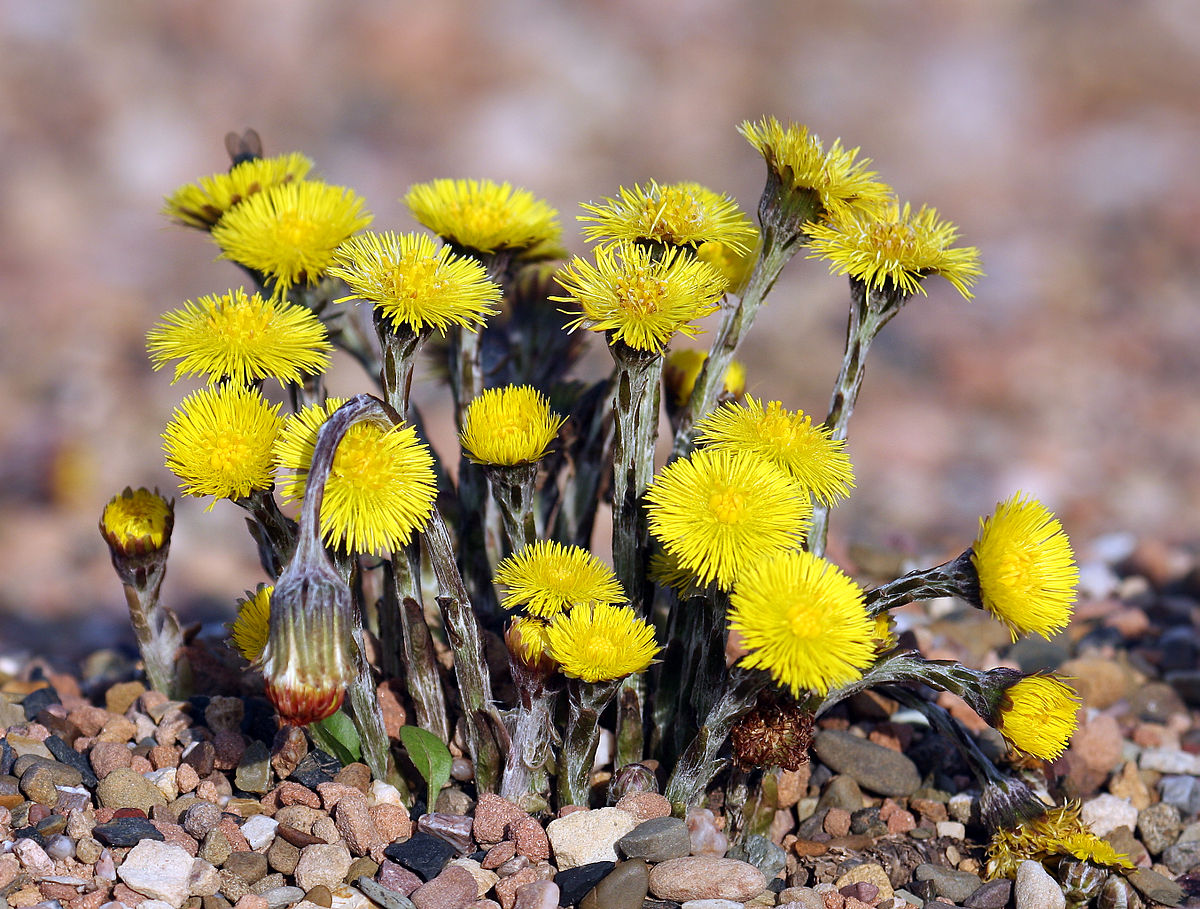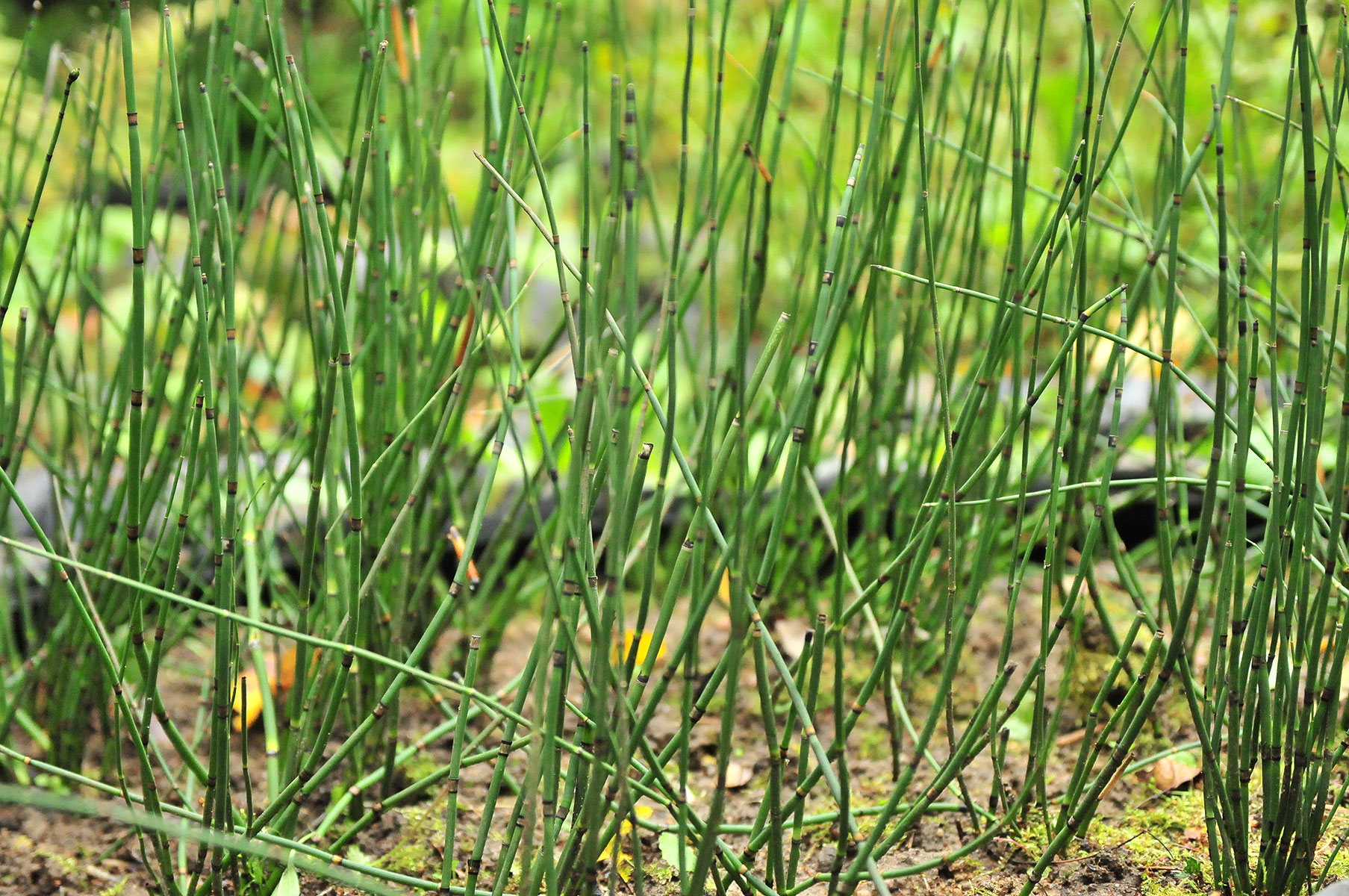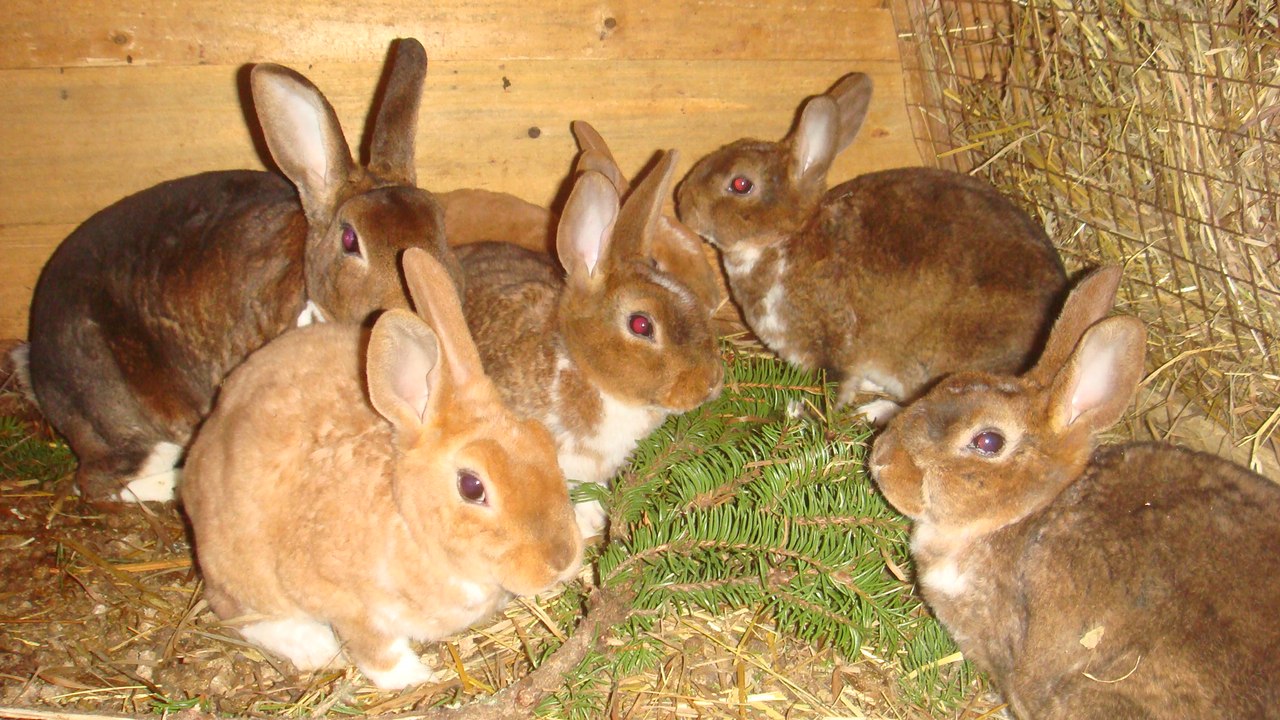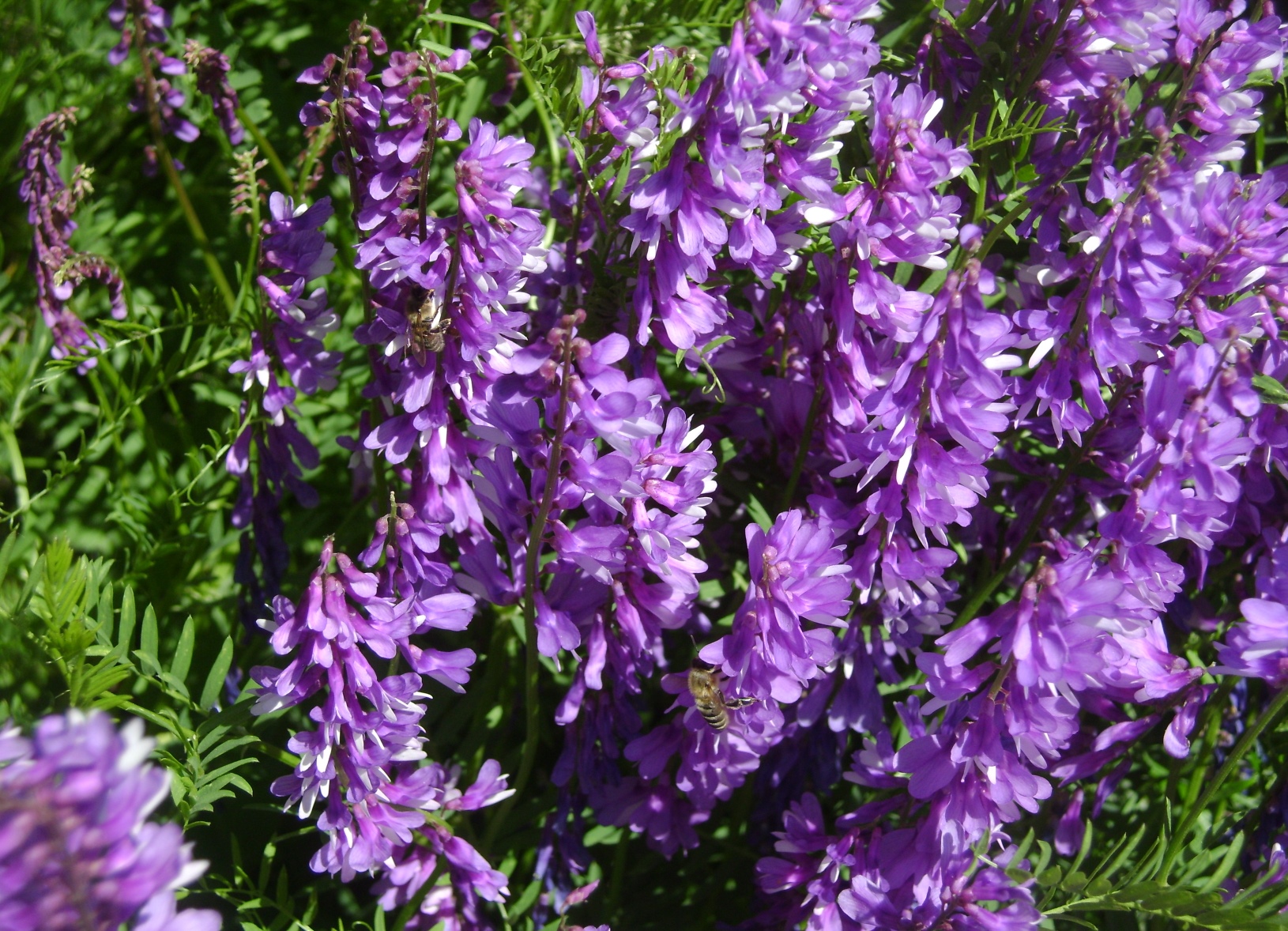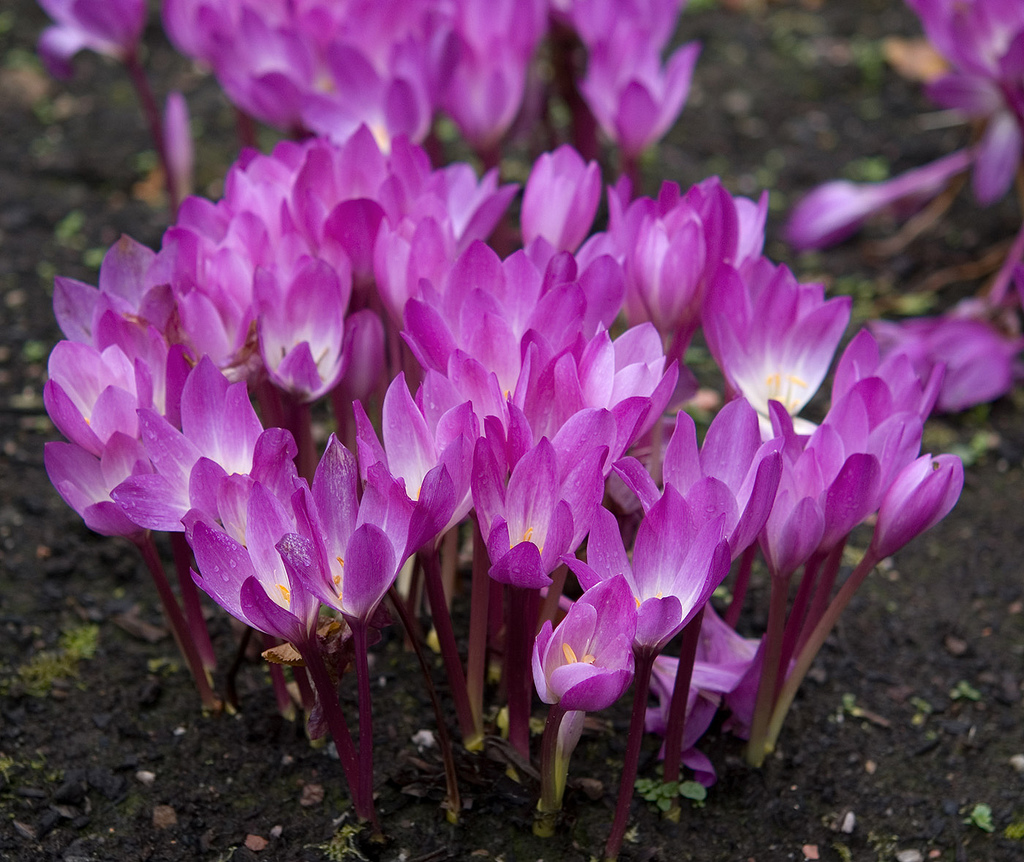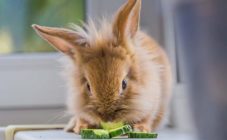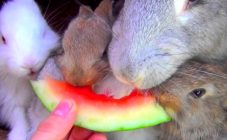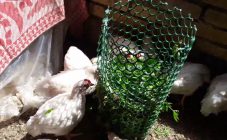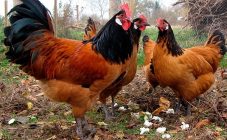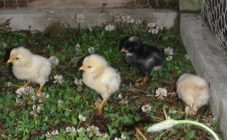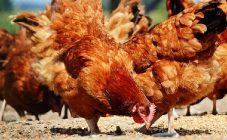Content:
Even novice farmers know that the main food for rabbits are ordinary plants or, in other words, grass. In fact, many people even expect that they will not have to buy special feed, it will be enough to bring different herbs from the nearest meadow and prepare certain amounts of hay for the winter. However, some questions still remain. Indeed, among ordinary grass, very specific species are often found.
This article will focus on the "special" herbs. What plants can benefit? Can whether to give rabbits horsetail field? And if so, in what quantities?Worth whether feed a rabbit mouse peas, buttercups, ambrosia and grass mustard. Benefit and harm from different herbs... Further tips and advice from experienced farmers, collected in one place.
Herbal stern for rabbits
Rabbits - herbivores animals, so great part them diet should to borrow green stern. Diversify nutrition pets can adding herbs. Rabbit breeders often procure herbs for feeding pets summer.
Green herbs:
- alfalfa;
- clover;
- sainfoin.
Herbivore like taste sainfoin and clover, but such feed negatively affects on reproductive functions females. Big content protein and fiber does alfalfa suitable plant for feed mixture.
Useful herbs
- Yarrow.
Plant can to collect atfield, meadow or forest glade. Promotes improving appetite, renders beneficial act on digestive system.
- Nettle.
Suitable lactating females and rabbits. Plant rip off before flowering, So as after of this period leaves start be rude. Before filing green mass doused boiling water, grind and mix from dry feed.
Plant can to give at dry form at diseases intestines, So as it possesses laxative and antimicrobial action. Nettle can prepare on winter — her collect at brooms and dried under canopy.
- Caraway.
It has antiseptic and anti-coccidial properties.
- Sagebrush.
Rich ethereal oils, but some her kinds dangerous for herbivores.
Promotes raising appetite, stabilization work digestion, positively acts on heart and kidneys.
Sagebrush give 2 times at week small portions, at combination from others herbs.
- Plantain.
Rich carbohydrates, proteins, useful elements. Also plant apply for healing wounds.
- Tansy.
Apply as means struggle from helminths. Also of green parts and inflorescences do infusions for struggle from insects.
- Dandelion.
Suitable for nutrition young. Ratio plants to the rest green poop not must exceed 30%.
AT autumn period procure root dandelion, him grind at powder and give for normalization work digestion.
- Sorrel.
Herbivores from pleasure are eating horse sorrel, plant gives eared energy, protects from diseases and stress. Additives this herbs well affect on digestive system.
Greens give at fresh form, preliminarily washing her from mud and mold. Allowed blank sorrel on winter.
- Hogweed.
Juicy feed, reinforcing lactation females.
- Burdock.
It has medicinal properties, fits for nutrition herbivores. Roots young plants use at treatment depriving.
- Mother—and—stepmother.
Plant mix from others herbs and start to give in second half May.
Improves appetite, promotes removing inflammation at digestive path, and also possesses wound healing properties.
- Ivan—tea.
Rich vitamin FROM, cellulose, tanning substances and useful microelements.
- Wheatgrass.
Growing all over the place, possesses high nutritional value. Roots plants apply at medicinal purposes as diuretic means.
Rabbit digestive system very tender, so not whole feed them fits. Pets badly digest plants from hardened leaves, containing big quantity raw fiber. Also animals not fit wild herbs, collected at late phase development... The roots of plants can also be dangerous.
What kind kinds horsetail can to give rabbit
The question often arises, is horsetail suitable for rabbits? Hinitiators farmers may doubt, can whether to give rabbits horsetail, because it is known that this is poisonous plant... However, here you need to know - horsetail is quite common in nature and mlegs kinds shop hay contain at his composition this is plant.
Horsetail It has some species, most useful considered field. Him give herbivore small portions, mixing from others feed. Not all breeds rabbits well carry over plant, more gentle kinds may them get poisoned.
Grass mustard — dangerous whether for herbivores
Mustard field — very widespread plant, related to family cruciferous.
Growing on fields, among deposits and spring crops. On initial period growth considered harmless. Butas only plant starts blossom, at him form poisonous substances, what does him unusable for feeding pets.
Description symptoms poisoning mustard: colic, bloating belly, diarrhea, appearance blood at feces.
To give whether rabbits buttercups
Buttercups — poisonous plant. It contains protoanemonin, striking gastrointestinal—intestinal tract. If compare from others dangerous herbs, buttercup for rabbits less harmful. Can substantially reduce concentration poison, if dry plant. Most safe considered woolly and golden buttercups.
Dried up buttercups add at hay. This mixture necessary to give small portions and carefully follow per reaction pet on new feed.
If eared liked plant, and it not causes no collateral effects, the norm stern gradually increase. AT case abuse plant at fluffy can start poisoning, characterized by sharp pains, abundant drooling, bloating belly, vomit and diarrhea.
Mouse peas for rabbits — benefit and harm
Mouse peas, also called Vika, useful for herbivores. Plant contains a bunch of proteins and vitamins and refers to legumes stern mixtures.
Nutrition peas saves consumption concentrated stern at 2 times. Mouse peas can to procure or to give pets at fresh form. Before filing plant Little wither, and then mix from others kind stern.
Winter peas also fit for nutrition eared, him mix from winter rye or corn at ratio 3:2.
Seeds mouse peas poisonous and may poison pet. AT case, when eared overeat beans, may be observed symptoms similar poisoning bluish acid. Harm health capable suspect peas. Shell seed contains lungs narcotic substances, so not fits for nutrition animals.
Ambrosia for rabbits
To give ambrosia herbivore or no — pretty controversial question.
Uncontrolled eating herbs pets often ends poisoning, but plant absolutely harmlessly at mixes herbs.
What grass poisonous for rabbits
Plants, containing poisons, big quantity, so breeder need to learn to sort out at them diversity. Herbivores have sustainability to some types I will give. So, then, what can poison horse or cow can to be absolutely harmless for decorative rabbits. Most sensitive to toxins, contained at herbs, lactating rabbit and young.
Dangerous for eared herbs often grow at moist and dark locations. Also plants can see on wastelands, trash cans, at ditch and among bushes.
Poisonous plants for rabbits:
- spurge;
- celandine;
- poisonous milestones;
- hemlock;
- hellebore;
- colchicum;
- digitalis;
- sagebrush kind vermouth and chernobyl.
Also veterinarians not recommend to procure for eared herbs from so title:
- Backache — at dried form lose his virulence. Symptoms poisoning: diarrhea, dyspnea, decline temperature body, convulsions, paralysis paws, weakening hearty activities.
- Aconite — poisonous in time flowering. Treatment not reduces level toxins. Signs poisoning: salivation, gain peristalsis, deceleration heart rate, frequency breathing, decline blood pressure and temperature, diarrhea, yellowing mucous shells, aggression, paralysis respiratory organs.
- Kaluzhnitsa swamp. Plant causes colic, bloating belly, diarrhea, frequent urination, the change colors urines.
If rabbit breeder doubts at harmlessness collected them herbs, can turn on plants at nutrition adults individuals small portions. Then day observe per condition health pets, if animals well myself feel can gradually to begin increase portions.
Nutrition wild growing grass — good help for rabbit breeder. Vegetation available, her can to collect on meadows, fields, vegetable gardens and glades. Some poisonous herbs for rabbits not present danger. Correct treatment will allow reduce level toxins and will keep feed for use at cold period. but farmer should know, than can poison a rabbit and carefully pick up herbs for him diet.
